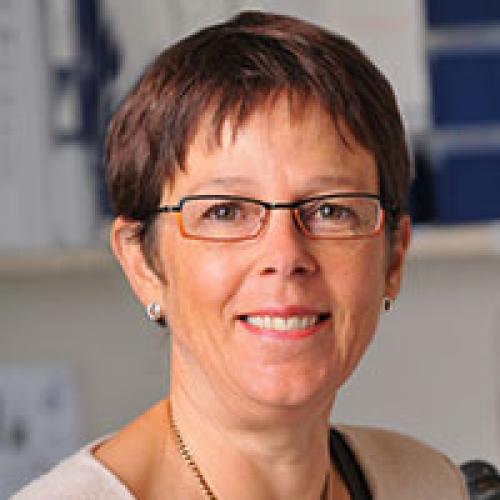
Raewyn Broady
Clinician Scientist
My research is focused on determining the role T regulatory cells play in ameliorating graft versus host disease. There is evidence in mouse models that suggests Treg cells play a role in the prevention of GVHD but in humans their role has not been clearly defined. In addition to quantifying the number of Tregs in the peripheral blood of patients with GHVD, we are developing methods to assess them in tissues, such as skin, that are affected by the disease.

Laura Cook
Postdoctoral Fellow
My primary research area is the role of disease antigen-specific CD4+ T cells in intestinal autoinflammatory and infectious diseases and investigating novel cell-therapy approaches for treating inflammatory bowel disease (IBD). My key areas of investigation are:
- Determining the unique advantages of using IL-10-secreting type 1 regulatory cells as a cell-therapy for IBD.
- Exploring the utility of a parasite-derived molecule to induce stable regulatory T cells for therapeutic use.
- Understanding the role of bacterial flagellin-specific CD4+ T cells in driving inflammatory bowel disease.
- Characterizing the CD4+ T cell memory response to C. difficile infection and determining its use as a predictive diagnostic tool.
Awards:
- Bertram Hoffmeister Postdoctoral Fellowship – BC Children’s Hospital, Canada
- JDRF Canadian Clinical Trial Network Postdoctoral Fellowship – JDRF, Canada
- Transplant Research Training Award – Canadian Institutes of Health Research
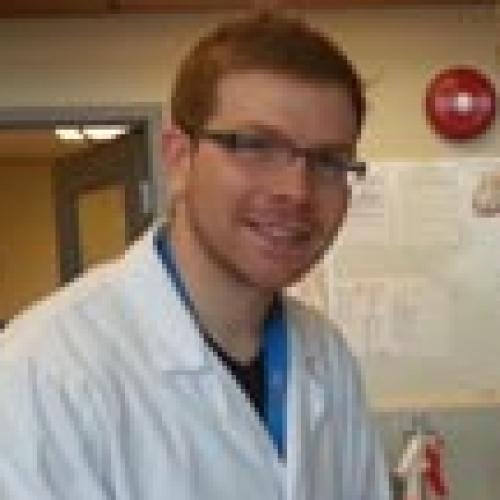
Nick Dawson
Doctoral Student
After insertion of an allograft, a common complication that occurs in patients is graft versus host disease. However, there is increasing evidence that acceptance of a graft is dependent, in part, by numbers of regulatory T cells. My research involves determining whether the Treg gene signature developed in our lab can predict susceptibility of GVHD after hematopoietic stem cell transplantation.
Awards:
-
Canadian Institutes of Health Research / Frederick Banting and Charles Best Canada Graduate Scholarship - Doctoral Award

Maria Fernando
Postdoctoral Fellow
Inflammatory bowel disease is a chronic relapsing and remitting disease of the gastrointestinal tract. Canada has one of the highest rates of IBD worldwide. My research is focused on the newly developed humanized monoclonal antibody vedolizumab (trade name Entyvio), which blocks binding of the alpha 4 beta 7 integrin, thereby preventing migration of T cells to the small intestine. In clinical trials, this drug has been shown to be extremely effective in reducing the severity of IBD. The clinical efficacy of this drug has been clearly demonstrated, and the purpose of my project is to determine the exact biological mechanism by which vedolizumab exerts its effect.
Awards:
- CIHR Postdoctoral Fellowship
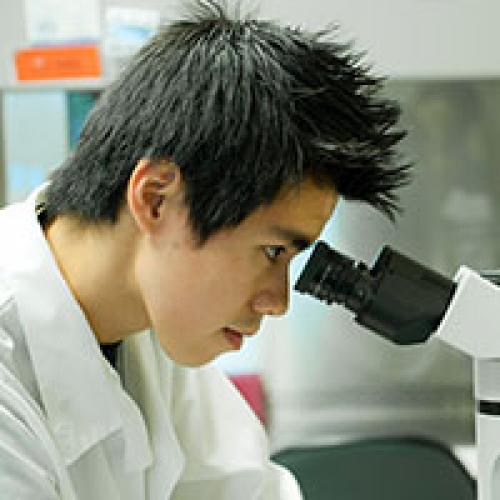
Jonathan Han
PhD Candidate
High levels of insulin is found in the obesity linked type 2 diabetes (T2D), a metabolic disorder in blood glucose homeostasis caused by insulin resistance. Interestingly, T2D patients also suffer chronic inflammation. My research suggests in the high levels of insulin in T2D may negatively regulate Tregs and consequently impairs immune tolerance, resulting in excessive inflammation.
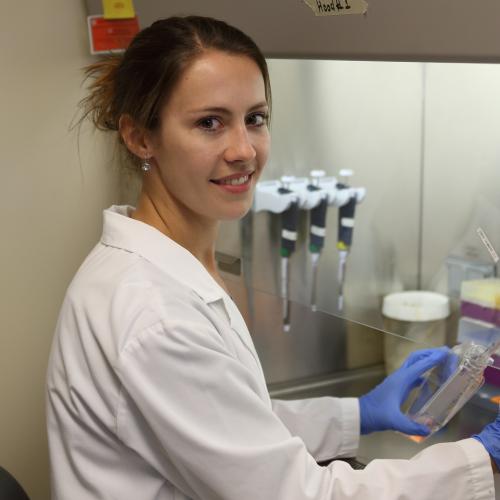
Romy Hoeppli
PhD Candidate
Animal models and early clinical trials have shown that regulatory T cells (Tregs) can induce tolerance after transplantation. As Tregs isolated from the blood are often contaminated with effector T cells, we propose discarded thymuses from children undergoing heart surgery as an alternative and rich source of Tregs for cell-based therapy. My research focuses on developing optimized culture conditions to expand thymic Tregs in vitro and investigating how Tregs induce tolerance in vivo.
Awards:
- Child and Family Research Institute Sue Carruthers Graduate Studentship
- Child and Family Research Institute Canucks for Kids Fund Childhood Diabetes Laboratories Graduate Studentship
- Canadian Institutes of Health Research Transplant Research Training Award
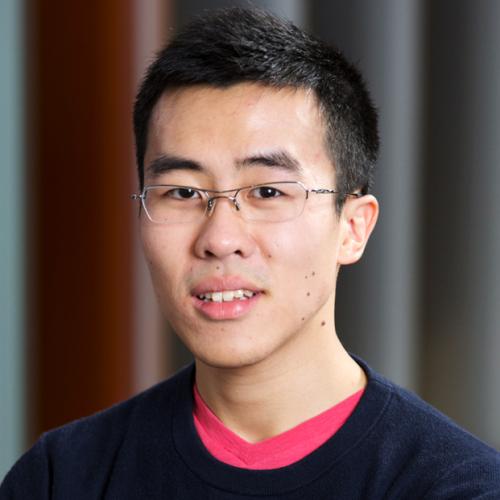
Avery Lam
PhD Student
My research focuses on novel mechanisms of Treg function. Our lab has found that human and murine Tregs produce chemokines to attract their target cells for suppression. My work aims to better understand the underlying mechanism and to characterize their defect in autoimmune disease. Additionally, we are examining the potential of Tregs to mediate tissue repair in the context of cell therapy.
Awards:
- CIHR Frederick Banting and Charles Best Canada Graduate Scholarships - Doctoral Award
- CIHR Frederick Banting and Charles Best Canada Graduate Scholarships - Master’s Award
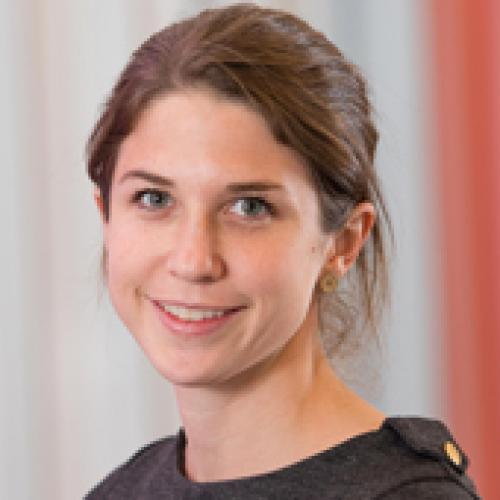
Caroline Lamarche
Postdoctoral Fellow, MD
My goal is to increase tolerance in solid organ transplant recipients by harnessing the natural properties of regulatory T cells (Tregs). Dr Levings’ lab developed a way to improve the potency of Tregs by engineering them to express a chimeric antigen receptor specific for a transplant-relevant antigen: HLA-A2. My role is to demonstrate whether A2-CAR Tregs can control allograft rejection and induce long-term transplant tolerance.
Awards:
- CIHR Postdoctoral Research Award
- Société Québécoise de Néphrologie
- Council of Physicians, Dentists and Pharmacists of Maisonneuve-Rosemont Hospital
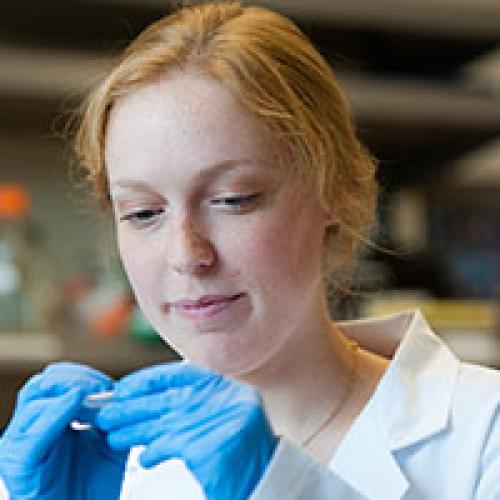
Kate MacDonald
PhD Candidate
Kate is a PhD student who is working on T regulatory cells in a clinical context. Her first project aims to genetically engineer antigen-specific Tregs to induce transplant tolerance against a graft mismatch. Her second project is to explore the plasticity of Tregs in diseases such as scleroderma.
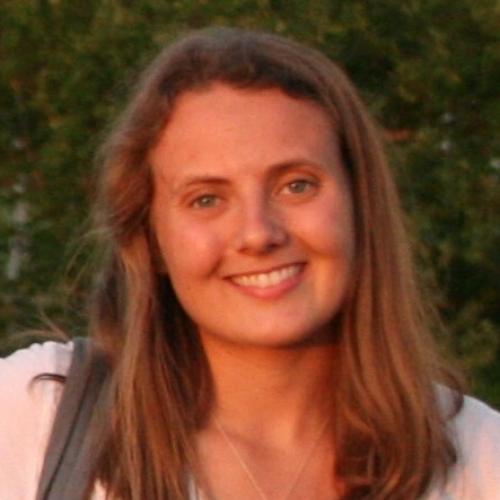
Emma McIver
Lab Technician
As a lab technician, my role in the lab is to assist teams working on Chimeric Antigen Receptor (CAR) research. This is primarily done by producing Lentivirus, a vector used to genetically modify our target cells so they may express the CAR.
Beyond my work with Lentivirus, I also assist students and researchers in the lab who study with CARs through in-vitro experiments.
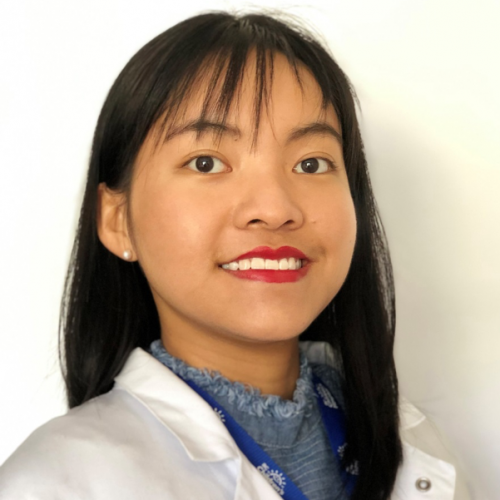
Uyen Nguyen
Masters Student
I joined the Levings Lab in 2018 as a Masters student with interests in high-dimensional flow cytometry and automated gating for flow data analysis. Using the latest 5-laser FACSymphony, I evaluate whether physical exercise improves immune recovery in patients who received an allogeneic bone marrow transplant (BMT). Ultimately, I will determine whether physical exercise can help rebuild the immune system and improve clinical outcome in the BMT population.
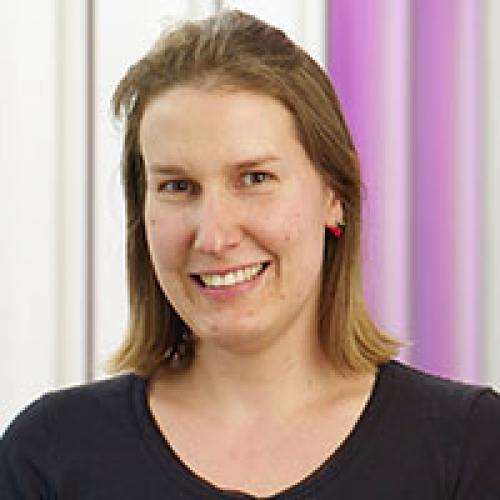
Annika Noreen
Research Coordinator
I have a strong scientific background, with a PhD and postdoc in molecular ecology. My passion lies in research management, and I enjoy taking on the varied responsibilities that help the research environment run smoothly and efficiently.
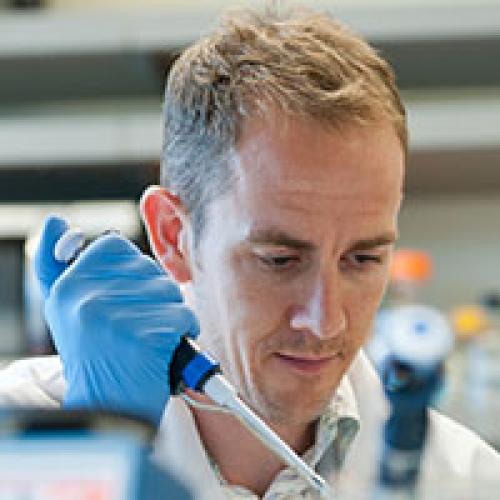
Scott Patterson
Research Associate
Our lab has shown that T regulatory cells (Tregs) have a defect in the PI3K pathway. We have found that a negative regulator of the PI3K pathway, PHLPP, is highly expressed in Tregs. I found that PHLPP is important for regulating Treg function and development. Using mouse models I aim to delineate the role of PHLPP expression in Tregs during disease.
Anne Pesenacker
Postdoctoral Fellow
I'm interested in regulatory T cells (Tregs), how they work and why they fail to control autoimmunity. To further understand how Tregs work in health but not in autoimmunity, I investigate one particular new mechanism of Treg action. We have discovered that Tregs can produce so called chemokines, we believe to facilitate close proximity to the cells, they are regulating. My aim is to find the mechanisms controlling Treg chemokine production, so that we might be able to restore this process when it is broken. Furthermore I'm studying Treg gene signatures, and how they might be used track Treg 'fitness' in the clinic. I'm particular interested in autoimmune type 1 diabetes and childhood arthritis.
Awards:
- Juvenile Diabetes Research Foundation, Postdoctoral Fellowship
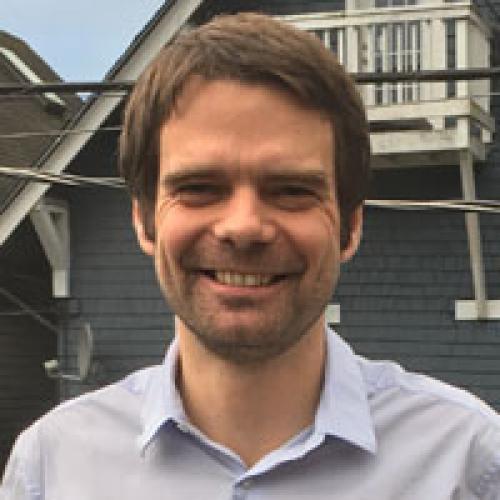
Antoine Sicard
Postdoctoral Fellow
I am a French clinician scientist (MD, PhD) specialized in nephrology, kidney transplantation and transplant immunology. Most of my clinical and experimental research has focused on a type of graft rejection that results from the development in the recipient of antibodies directed against donor determinants. These deleterious anti-donor antibodies are the main cause of long-term allograft loss and decrease the access to subsequent transplantations. Antibody-mediated rejection therefore represents one of the main current challenges of transplantation medicine.
My research has focused on three different areas:
- The physiopathology of antibody-mediated rejection,
- The prognostic stratification of patients with antibody-mediated rejection (AMR),
- The development of novel approaches to control the anti-donor antibody response.
Awards:
- Canadian Institutes of Health Research (CIHR) fellowship award
- European Commission H2020 program, Marie Skłodowska-Curie (MSCA) actions, Individual global fellowship award
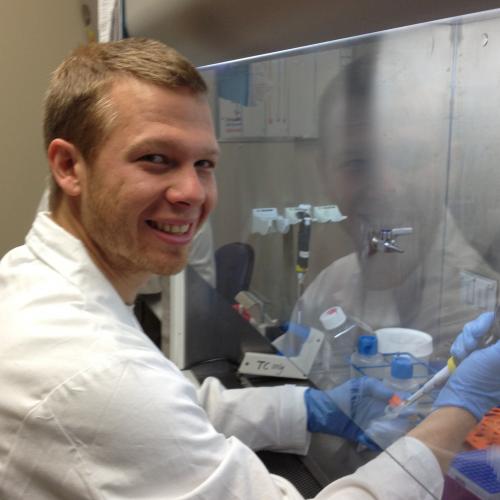
Jens Vent-Schmidt
PhD Candidate
Inflammatory Bowel Disease, an incurable chronic disease, is associated with hyper-activated pro-inflammatory cells that promote inflammatory lesions in the gut. Concomitantly, regulatory T cells which usually suppress unwanted immune responses are reduced in numbers and are under-activated. My project aim is to genetically engineer regulatory T cells to re-gain their function and to suppress gut inflammation at the side of the lesion. This would result in a novel patient-specific therapy with significantly reduced risk of systemic side effects.
Awards:
-
Vanier Canada Graduate Scholarship
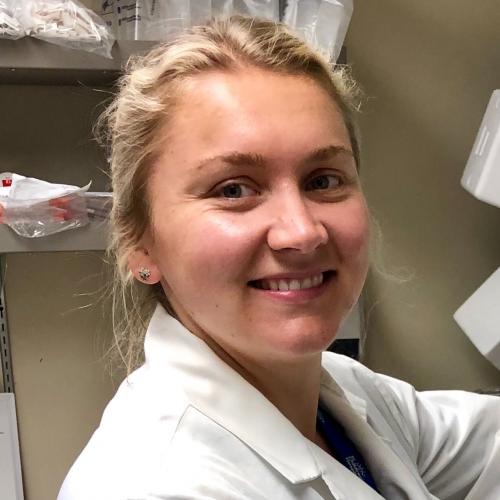
Kirsten Ward-Hartstonge
Postdoctoral Fellow
My research focuses on regulatory T cells (Tregs) in human disease such as type 1 diabetes and inflammatory bowel disease. I am interested in how Tregs change in response to disease treatment and how changes in Tregs may predict treatment effectiveness. I am also investigating how integrin signalling modifies Treg function and phenotype in humans.
Awards:
- Juvenile Diabetes Research Foundation, Postdoctoral Fellowship
- Canadian Institutes of Health Research / Canadian Association of Gastroenterology, Postdoctoral Fellowship
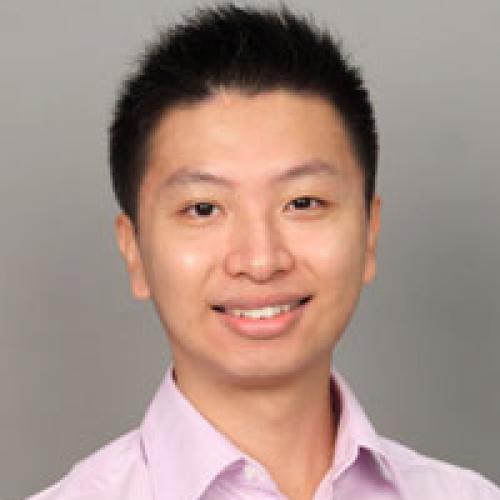
Dan Wu
PhD Student
We have found that a pseudokinase, Trib1, is highly expressed in Tregs. Although lacking the catalytic domain for phosphorylation, the tribbles proteins can modulate various cellular processes by interacting with a number of transcription factors and signalling kinases, including FOXP3 and AKT, which are important regulators of Treg function. My project aim to establish the expression profiles of tribbles proteins and to understand their functions in human and mouse Tregs.
Awards:
-
Canadian Institutes of Health Research / Frederick Banting and Charles Best Canada Graduate Scholarship - Doctoral Award
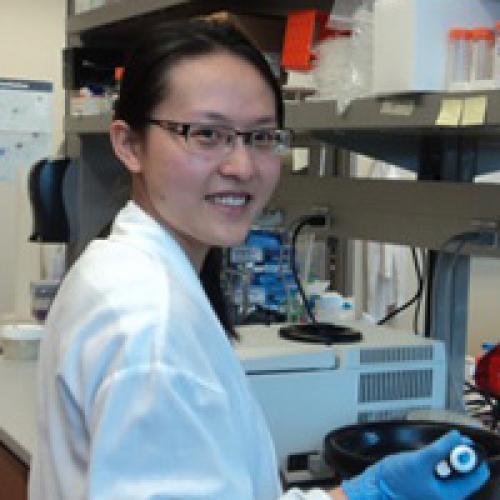
Maggie Yao
PhD Candidate
Inflammatory bowel disease is a condition that is believed to be driven by pathogenic inflammatory responses against commensal bacterial antigens. Cellular stress signals that are released during chronic inflammation may contribute to drive the vicious cycle of pathogenic immune responses in the disease. My research focuses on studying how different stress signals, such as extracellular ATP, influence the inflammatory response and regulate the crosstalk between innate and adaptive immune responses.
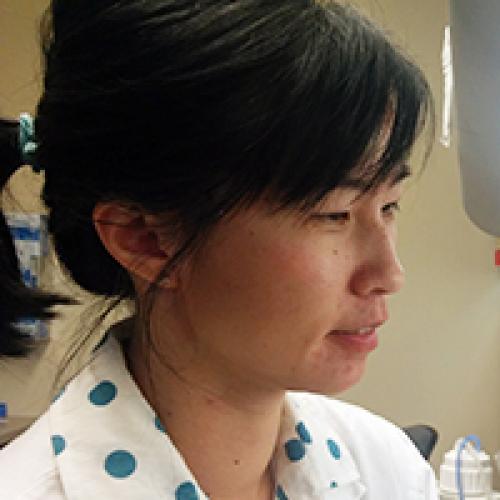
May Wong
Lab Technician
Antigen recognition by T-cells is crucial for their function. My research focuses on whether engineered antigen recognition by Tregs can rescue their ability to suppress unwanted inflammation and whether antigen specific T-cell responses can be used as a prognostic tool in these incurable diseases.
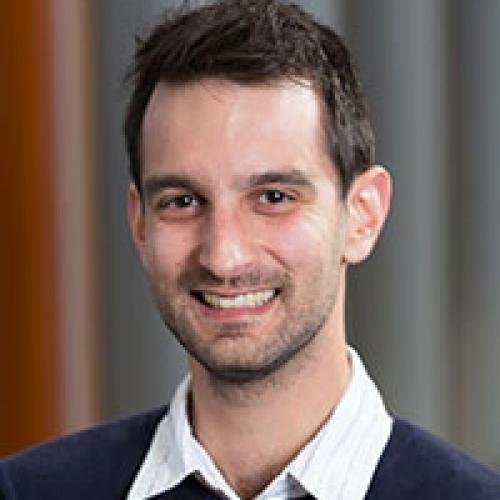
Dominic Boardman
Postdoctoral Fellow
I am interested in the biology of regulatory T cells (Tregs) and how these cells can be used as a therapy to treat inflammatory disorders, autoimmune diseases and transplant rejection. I obtained my PhD from King’s College London where I explored the benefits of using chimeric antigen receptor (CAR) technology to improve the therapeutic efficacy of human Tregs for treating transplant rejection. As a postdoctoral fellow in Dr. Levings’ Lab, I am now investigating how this concept of CAR Treg therapy can be adapted to treat inflammatory bowel disease. I am also researching how novel gene editing techniques (CRISPR) can be used to maximise the efficacy of CAR Tregs and promote their implementation in the clinic.
Awards:
- Canadian Institutes of Health Research (CIHR) Fellowship
- Michael Smith Foundation for Health Research (MSFHR) Trainee Award
- Mining for Miracles Postdoctoral Fellowship (Declined)
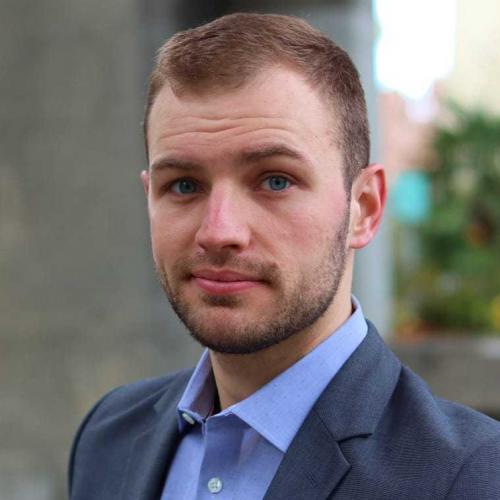
Andrew Brown
PhD student
To better harness their immunosuppressive function, regulatory T cells (Tregs) can be engineered to express a chimeric antigen receptor (CAR) on the cell surface. CARs are designed to recognize and activate Treg immunosuppressive mechanisms upon contact with disease-specific antigens. However, further research is required before CAR Tregs achieve clinical utility, for example, to extend the duration of benefit, reduce donor variability, and increase the safety of administered cells. My PhD research aims to address these challenges using genetic engineering strategies to design CAR-Tregs with minimal risk and optimized disease-specific function. That is, to create "designer" Tregs that are specifically suited to establish immune tolerance for transplantation and autoimmune diseases.
Awards:
- Anne and John Brown Fellowship in Diabetes and Obesity Related Research
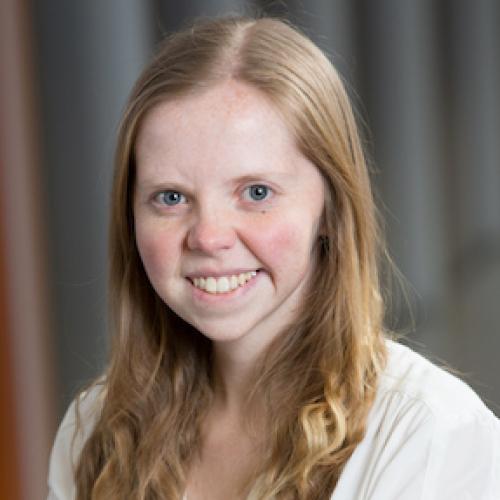
Katie N. MacDonald
PhD Candidate
We have found that discarded thymuses from children undergoing heart surgery are a rich source of Tregs for cell-based therapy. My research focuses on developing methods to isolate, expand and cryopreserve these cells that can used in clinical applications. I am also interested in investigating new conditions to further enhance Treg growth in culture.
Awards:
- Canadian Institutes of Health Research / Frederick Banting and Charles Best Canada Graduate Scholarship - Doctoral Award

Matthew Budd
PhD student
My project aims combine fundamental elements of data science and immunology to achieve two primary aims: 1) isolate and characterize rare subsets of immune cells from pancreatic islets, and 2) study regulatory T-cell (Treg) function in terms of modulating beta-cell proliferation, insulin production, and cellular development pathway regulation in type 1 diabetes (T1D). To do this, I’ll be using a specialized sequencing and expression analysis technique known Cellular Indexing of Transcriptomes and Epitopes by Sequencing (or CITE-seq). My interest is to support the use of Treg cellular therapy as a potential treatment option for patients with T1D by developing a deeper mechanistic understanding of the role of Tregs in T1D development.
Awards:
- UBC Four Year Fellowship